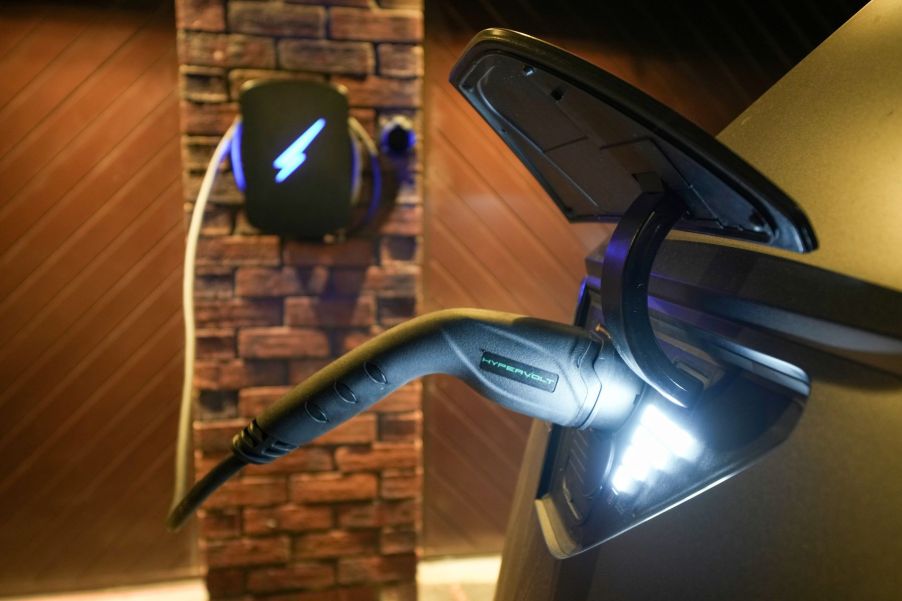
Top Auto-Executives Appear to Be Cooling off on the Idea of EV Adoption
For years now, experts have been proclaiming the rise of electric vehicles. Lots of dates have been thrown out for when the marketplace will be fully electric, and some countries are even taking steps to speed this process up. Now it appears that there are some auto executives who aren’t as enthusiastic about the electric revolution as they once were.

A recent survey revealed a change in trends
According to a global auto survey by KPMG, auto executives aren’t as eager to push EVs as they once were. There are many reasons for this, but it mainly boils down to rising prices and supply chain issues.
CNBC reports,
“Amid those concerns, KPMG reports automotive executives are less bullish about the prevalence of all-electric vehicles in the U.S. and globally by 2030. Estimates of new vehicles sold being EVs by then globally ranged from 10% to 40% in this year’s survey, down from 20% to 70% a year earlier. For the U.S., the median expectation for EV sales was 35% of the new vehicle market — down from 65% a year earlier and significantly lower than the Biden administration’s 50% goal by 2030 that was announced late last year.”
The survey revealed a few other factors, such as the fact that Tesla is the automaker expected to lead the battery-electric car market in 2030. This hasn’t changed since last year’s survey, but there were some major upsets.
Last year, BMW was expected to come in second place. This year, that slot has been seized by Audi, and BMW dropped to third. Ford was in third place last year, but now it has dropped to fifth place.
The automaker with the biggest jump isn’t actually an automaker. At least not yet. Apple is working on creeping into the auto industry. While it’s not clear if this is a futile attempt or a takeover, Apple has jumped from ninth place to fourth.
The expected electric revolution didn’t happen
Just a few short years ago, auto executives were thrilled at the notion of a fully electric lineup. Many countries are also behind this, and California has banned the sale of gas-powered vehicles beginning in 2035.
Reviews eagerly praised EVs and many are winning awards based solely on the fact that they are environmentally friendly. The future seemed incredibly bright for EVs, but that light is beginning to dim.
There are many reasons why auto executives aren’t as enthusiastic about electric vehicles as they once were. This doesn’t mean that they have given up on EVs, but a lot of the hype surrounding them has definitely cooled down.
One of the reasons could be the plethora of issues hitting EVs. One factor is cold weather affecting the batteries. For those who live in cooler climates, EVs aren’t exactly a wise choice for a reliable vehicle.
Then there’s also the fact that the mining needed to get the materials needed for assembly is very harmful to the environment. Because of these factors, the future of electric vehicles may be in question.
Will the future still be electric?
While no one can fully predict the future, we will still likely end up driving electric cars going forward. It’s just not going to happen anytime soon.
Many automakers once believed that 2030 would be an acceptable timeline for going fully electric with their lineups. That date will most likely be pushed back.
Automakers are eager to solve many of the problems with EVs, however, and are working around the clock to address these issues. They won’t be solved overnight, but once prices come down and reliability rises, then consumers will be more likely to get on board with fully electric vehicles. Until then, the timeline will shift and change based on a wide range of factors, which automakers have no control over.


